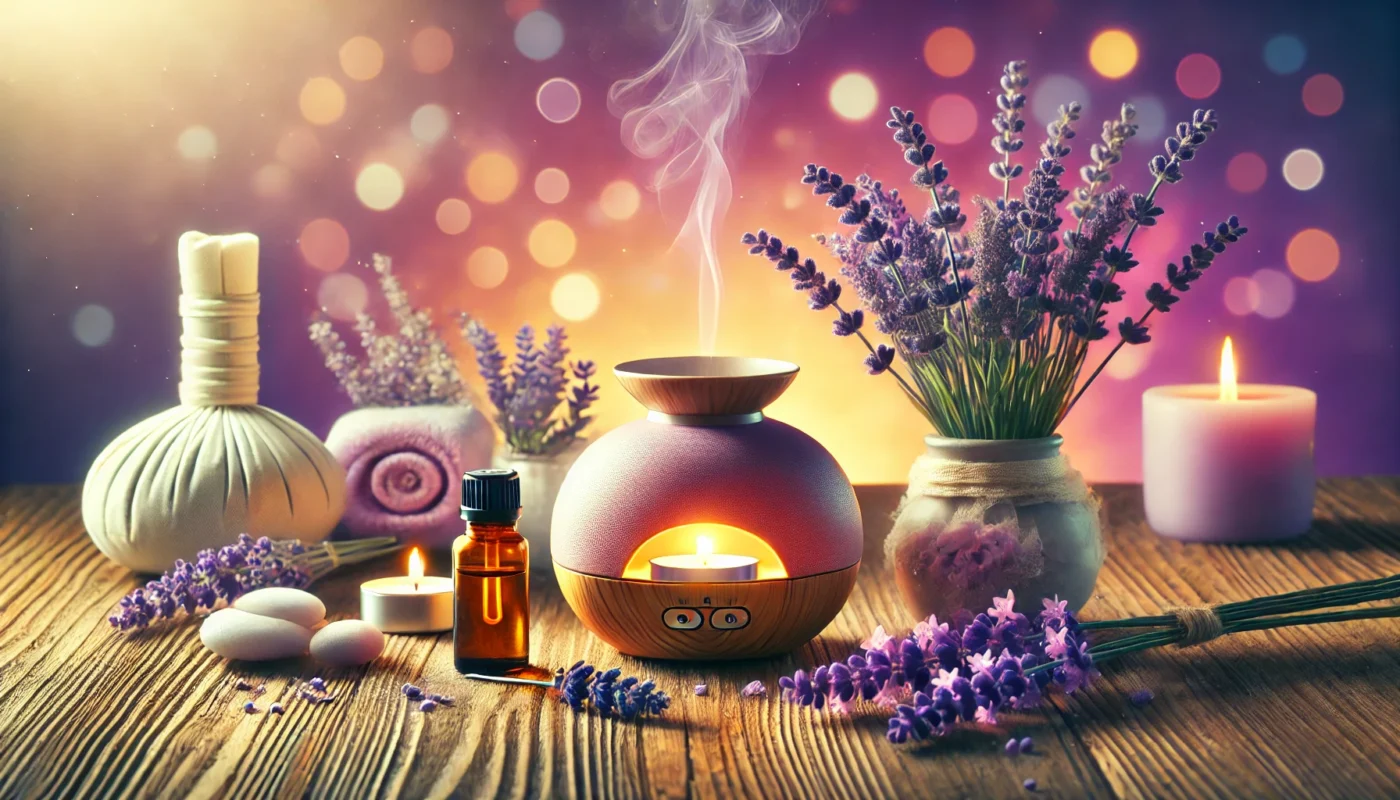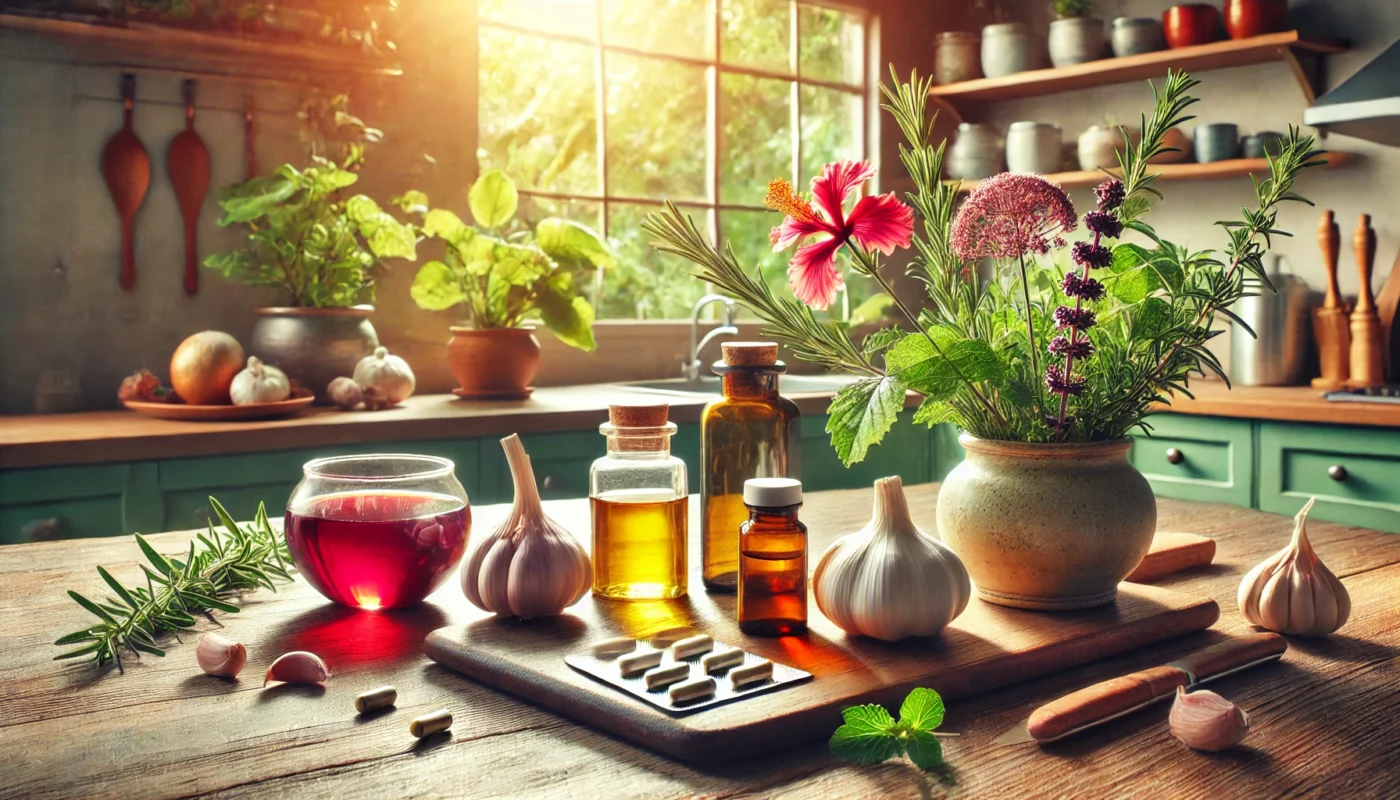Hypertension, commonly known as high blood pressure, affects nearly half of the global adult population, making it one of the most prevalent chronic conditions worldwide. Defined as blood pressure consistently at or above 130/80 mmHg, hypertension is a leading risk factor for heart disease, stroke, and kidney failure. While medications and lifestyle changes like diet and exercise are the cornerstone of hypertension management, natural remedies, including herbal supplements, essential oils, and other alternative approaches, have gained significant interest. This article provides a fact-based review of natural remedies for hypertension, exploring their effectiveness, scientific support, and potential limitations.
You May Also Like: How Hypertension Affects Kidney Health: A Vicious Cycle
The Role of Natural Remedies in Managing Hypertension
Natural remedies aim to complement conventional treatments by addressing key factors that contribute to hypertension, such as stress, inflammation, and vascular health. However, not all natural approaches are backed by rigorous scientific evidence. Understanding what works and what doesn’t is essential for making informed decisions about incorporating these remedies into a hypertension management plan.

Herbal Supplements for Hypertension: What Works?
Herbal supplements have been used for centuries to support cardiovascular health. While some have demonstrated promising effects in clinical studies, others lack sufficient evidence or may interact with medications. Below are some of the most researched herbal remedies for hypertension.
1. Hibiscus
Hibiscus extract, derived from the Hibiscus sabdariffa plant, is rich in anthocyanins and other antioxidants that promote vascular health. Hibiscus works by increasing nitric oxide production, which relaxes blood vessels and lowers blood pressure.
- Evidence: A study published in The Journal of Nutrition (2010) found that drinking hibiscus tea daily reduced systolic blood pressure (SBP) by 6 mmHg and diastolic blood pressure (DBP) by 3 mmHg in prehypertensive adults.
- How to Use: Hibiscus tea can be consumed daily, but individuals on antihypertensive medications should consult a healthcare provider to avoid interactions.
2. Garlic
Garlic contains allicin, a compound with vasodilatory and anti-inflammatory properties. It has been shown to improve blood flow and reduce hypertension.
- Evidence: A meta-analysis in BMC Cardiovascular Disorders (2018) reported that garlic supplementation reduced SBP by 5–7 mmHg and DBP by 3–5 mmHg in hypertensive patients.
- How to Use: Garlic supplements or raw garlic can be incorporated into meals, but high doses may cause gastrointestinal discomfort.
3. Hawthorn
Hawthorn is a traditional remedy for cardiovascular health, believed to improve blood vessel function and reduce blood pressure through its antioxidant effects.
- Evidence: A clinical trial published in Phytotherapy Research (2012) found that hawthorn supplementation significantly reduced SBP in individuals with mild hypertension.
- How to Use: Hawthorn extract is available as capsules, but long-term safety data are limited.
4. Olive Leaf Extract
Olive leaf extract contains polyphenols, such as oleuropein, that support vascular health by reducing oxidative stress and improving endothelial function.
- Evidence: A study in Clinical Nutrition (2017) demonstrated that olive leaf extract reduced SBP by 5 mmHg and DBP by 3 mmHg after 12 weeks of supplementation.
- How to Use: Available as capsules or tinctures, olive leaf extract is a safe and well-tolerated option for most individuals.
5. Beetroot
Beetroot is rich in nitrates, which the body converts into nitric oxide, a molecule that relaxes blood vessels and improves blood flow.
- Evidence: Research published in Hypertension (2015) showed that drinking beetroot juice reduced SBP by 4–5 mmHg within hours, with sustained benefits over time.
- How to Use: Fresh beetroot juice or powdered supplements can be consumed daily.
Herbal Remedies That May Not Work
Not all herbal supplements marketed for hypertension management are supported by strong evidence. Below are examples of remedies with limited or inconclusive data:
- Ginseng: While popular for general wellness, studies on its blood pressure-lowering effects have produced mixed results.
- St. John’s Wort: Often used for mood enhancement, it may interact negatively with hypertension medications, potentially raising blood pressure.
- Cinnamon: Some studies suggest minor blood pressure reductions, but the evidence is insufficient for it to be a standalone remedy.

Essential Oils: Do They Help with Hypertension?
Aromatherapy using essential oils is often promoted as a natural way to reduce stress and lower blood pressure. While essential oils cannot directly affect blood pressure, they may help by reducing stress, a known contributor to hypertension.
Effective Essential Oils
- Lavender Oil:
Known for its calming effects, lavender oil has been shown to reduce stress and anxiety. A study in Complementary Therapies in Medicine (2018) found that lavender aromatherapy reduced heart rate and blood pressure in hypertensive individuals. - Ylang-Ylang Oil:
Ylang-ylang oil may help relax the nervous system and lower stress-induced blood pressure spikes. - Bergamot Oil:
Bergamot has mood-enhancing properties that may indirectly support blood pressure control by reducing stress.
How to Use Essential Oils
Essential oils can be used in diffusers, added to baths, or applied topically with a carrier oil. However, they should never replace conventional treatments for hypertension.
Lifestyle-Based Natural Remedies
In addition to herbal supplements and essential oils, lifestyle-based natural remedies can have a profound impact on blood pressure management.
1. Mindfulness and Meditation
Mindfulness practices, such as meditation and deep breathing exercises, reduce stress and improve autonomic nervous system balance.
- Evidence: A study in Psychosomatic Medicine (2018) found that mindfulness-based stress reduction (MBSR) lowered SBP by 4 mmHg and DBP by 3 mmHg in individuals with mild hypertension.
These practices combine physical activity with relaxation, promoting vascular health and reducing stress.
- Evidence: A review in Current Hypertension Reports (2019) highlighted that yoga reduced SBP by 5 mmHg on average, particularly in patients with stress-related hypertension.
3. Dietary Approaches
The DASH (Dietary Approaches to Stop Hypertension) diet, which emphasizes fruits, vegetables, whole grains, and low-fat dairy, is one of the most effective natural interventions for blood pressure control.
- Evidence: A study in The New England Journal of Medicine (1997) demonstrated that the DASH diet reduced SBP by 11.4 mmHg in hypertensive participants.
Limitations of Natural Remedies
While natural remedies offer significant benefits, they have limitations that should be considered:
- Lack of Standardization:
Herbal supplements vary in quality, potency, and purity, making it difficult to ensure consistent effects. - Potential Interactions:
Many natural remedies interact with prescription medications, which can reduce their efficacy or cause adverse effects. - Delayed Results:
Natural remedies often take weeks or months to show significant results, making them less effective for immediate blood pressure control. - Insufficient Evidence:
Some remedies lack robust clinical trials, leaving their efficacy unproven.

The Role of Nutritional Supplements
Nutritional supplements can complement natural remedies by addressing nutrient deficiencies and supporting vascular health. Below are five evidence-based supplements:
1. Coenzyme Q10 (CoQ10)
CoQ10 is a potent antioxidant that reduces oxidative stress and improves heart function. A clinical trial in Hypertension Research (2007) demonstrated that CoQ10 supplementation lowered SBP by 11 mmHg.
2. Omega-3 Fatty Acids
Omega-3s reduce inflammation and improve arterial flexibility. A meta-analysis in Hypertension (2018) found that omega-3 supplementation reduced SBP by 4 mmHg and DBP by 3 mmHg.
3. Magnesium Glycinate
Magnesium promotes relaxation of blood vessels and supports overall cardiovascular health. A study in Magnesium Research (2016) reported a 5 mmHg reduction in SBP with magnesium supplementation.
4. Hibiscus Extract
Hibiscus extract supports nitric oxide production, promoting blood vessel relaxation. The Journal of Nutrition (2010) found a 6 mmHg reduction in SBP with daily hibiscus tea consumption.
5. L-arginine
L-arginine is an amino acid that serves as a precursor to nitric oxide, improving blood flow and reducing blood pressure. A study in Nutrition Journal (2017) reported a 5 mmHg reduction in SBP with L-arginine supplementation.
Conclusion
Natural remedies for hypertension, including herbal supplements, essential oils, and lifestyle-based approaches, can be valuable additions to a comprehensive management plan. While options like hibiscus, garlic, and mindfulness have strong scientific backing, others lack sufficient evidence or pose potential risks. It is essential to approach natural remedies with caution, prioritize high-quality products, and consult a healthcare provider to ensure compatibility with existing treatments. By combining natural remedies with conventional therapies and lifestyle changes, individuals can take a proactive role in managing hypertension and improving overall cardiovascular health.

References
- The Journal of Nutrition. (2010). Hibiscus tea and its impact on hypertension. The Journal of Nutrition. Retrieved from https://academic.oup.com
- Hypertension Research. (2007). CoQ10 supplementation and blood pressure reduction. Hypertension Research. Retrieved from https://www.nature.com/hr
- BMC Cardiovascular Disorders. (2018). Garlic and cardiovascular health: A meta-analysis. BMC Cardiovascular Disorders. Retrieved from https://www.biomedcentral.com
- Complementary Therapies in Medicine. (2018). Lavender aromatherapy and blood pressure control. Complementary Therapies in Medicine. Retrieved from https://www.journals.elsevier.com
- Nutrition Journal. (2017). The role of beetroot powder in vascular health. Nutrition Journal. Retrieved from https://www.biomedcentral.com
Key TERMS for this article:
Hypertension, Natural Remedies, Herbal Supplements, Essential Oils, Lifestyle Interventions, DASH Diet, Blood Pressure Management
Relevant and useful TAGS for this article:
Hypertension Remedies, Natural Blood Pressure Control, Herbal Supplements for Hypertension, Essential Oils and Stress, DASH Diet Benefits, Mindfulness for Hypertension, Blood Pressure Reduction, Garlic and Hypertension, Hibiscus Tea Benefits, Cardiovascular Health
Important Note: The information contained in this article is for general informational purposes only, and should not be construed as health or medical advice, nor is it intended to diagnose, prevent, treat, or cure any disease or health condition. Before embarking on any diet, fitness regimen, or program of nutritional supplementation, it is advisable to consult your healthcare professional in order to determine its safety and probable efficacy in terms of your individual state of health.
Regarding Nutritional Supplements Or Other Non-Prescription Health Products: If any nutritional supplements or other non-prescription health products are mentioned in the foregoing article, any claims or statements made about them have not been evaluated by the U.S. Food and Drug Administration, and such nutritional supplements or other health products are not intended to diagnose, treat, cure, or prevent any disease.

